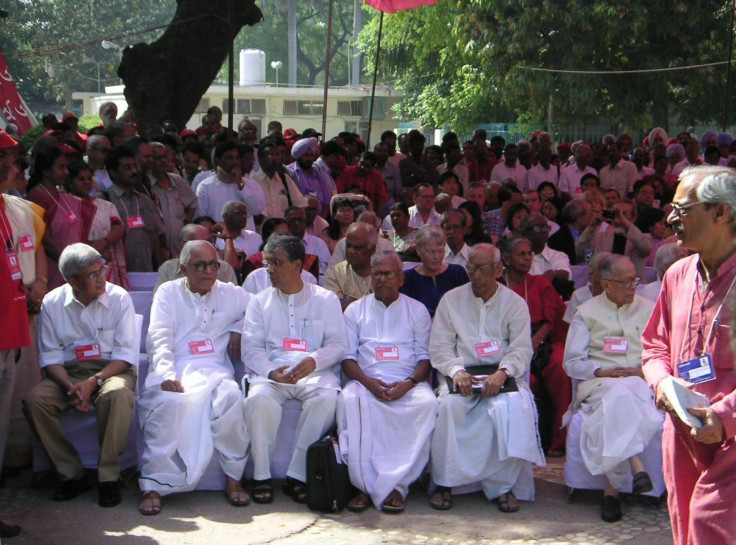Better Red Than Dead? Communism Thriving In Corner Of India

In India, the world’s most populous democracy, Communist politicians still hold considerable power in at least one pocket of the vast country.
For example, in recent elections in the small northeastern state of Tripura, the Communist Party of India-Marxist and Communist Party of India – which together form the Left Front coalition -- gained 50 of the 60 seats in the state assembly, a veritable landslide. It marked the fifth consecutive election that Communists have triumphed in the state, extending to two decades the domination of the leftist coalition.
Moreover, since 1978, the Communists have won seven elections in the state -- their run of success was interrupted between 1988 and 1993.
"We must have done a few good things to earn this victory. It has increased our responsibility manifold," returning Chief Minister Manik Sarkar told Indian media.
Tripura is the only Indian state currently ruled by Communists, although the party has ruled much larger West Bengal and Kerala in the recent past. Peoples’ World reported that the Communists did not win due to voter apathy – indeed turnout was an extraordinary 94 percent, an all-time record for Tripura.
The Hindustan Times newspaper attributed the success of the Communists in Tripura to good governance, strong benefit schemes for the public, an upgrade in rural investments, a check on militant groups in the region and good relations between the state and its indigenous peoples.
“This victory has reflected our performance on development and in ensuring peace and security. The Left Front has always endeavored to fulfill realistic promises," said Communist Party secretary Bijon Dhar in the capital city of Agartala.
The other 10 assembly seats in Tripura are held by members of the Congress Party – the party that rules the national government and which is embroiled in numerous corruption cases.
Indeed, Tripura’s 2.3 million voters apparently tuned out a plea by Rahul Gandhi, the vice-president of Congress and son of Sonia and Rajiv, to vote the Communists out prior to the ballot.
Calling the Left Front a “failure,” Gandhi noted that Communists had been voted out of office in West Bengal in 2011 and that “the Communists are nowhere, except in China and Tripura.”
But after the results came out Dr. M. Nara, a senior official of Communist Party of India, told Kangla Online that the overwhelming victory by the Communists in Tripura “shows clearly that the people of the state could not be swayed by money and muscle power. The government-led by Comrade Manik Sarkar have run the state for four terms. As the party made a grand success in the election, the party will serve the people for the fifth time.”
According to Sudhanva Deshpande and Vijay Prashad, writing in the leftist site CounterPunch, Tripura is remarkably free of political corruption and extreme poverty.
Between 2004-05 and 2009-10, they note, Tripura’s poverty rate plunged from 40 percent to 17.4 percent -- the highest decline in poverty figures for all of India during this past decade.
Financial columnist Manas Chakravarty pointed out mischievously: “The state must be doing something right, although we don’t have the faintest idea about it. We need to find out fast, so that the nation can learn from Tripura and adopt its model of development, whatever that may be.”
Once wracked by separatist violence (often aided and abetted by neighboring Bangladesh), Tripura has been at peace since the early 1990s.
Sanjay Kumar wrote in The Diplomat: “Political concessions [by the state government] and representation in the form of autonomous regions for the state’s various tribes assimilated the local indigenous people into the democratic mainstream. [A state of peace] has facilitated not only democratic consolidation but also economic development.”
© Copyright IBTimes 2024. All rights reserved.





















